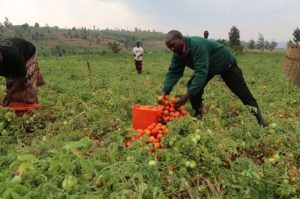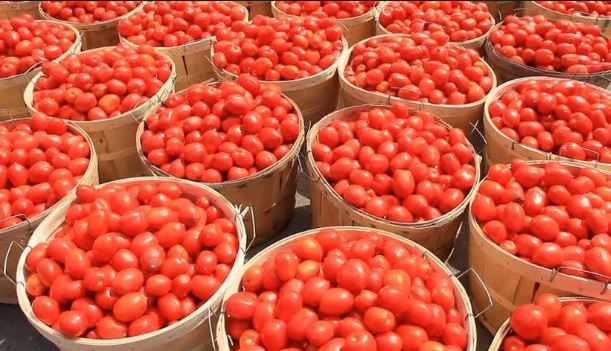Nigeria may be heading for a revolution in tomato production in the coming days, that is because the central bank and the federal ministry of agriculture are working hand in hand to launch a new programme.
 While the CBN is furnishing tomato farmers with capital through it’s anchor-borrowers scheme, the federal government plans to place a ban on import of tomato products before the end of the year.
While the CBN is furnishing tomato farmers with capital through it’s anchor-borrowers scheme, the federal government plans to place a ban on import of tomato products before the end of the year.
Tomato is cultivated in many parts of Nigeria, with 80% of the vegetable grown in the North alone.
Nigeria currently produces 1.8 million tonnes of tomato annually, while local demand is 2.3 million tonnes. Imported tomato paste, powder and concentrate make up for the supply deficit.
Tomato has a short shelf life. In Nigeria, 40 to 51 percent of tomato produced never make it to the market, due to poor processing and storage facilities.
The central bank of Nigeria has over time, given support to the agricultural value chain. The apex bank is now stepping up its efforts towards an enhanced tomato-processing industry.
The aim is for Nigeria to achieve self sufficiency in tomato production in the next one year.
To further boost production and grow the local industry, the federal government is set to ban the importation of tomato puree, before the end of 2019.
Some health experts have also raised concerns over the consumption of imported tomato concentrate, stating that some of the products are laced with cancer-causing colouring and preservatives.
With the ban on tomato concentrate in place, Nigeria will not only grow its local industry, but will also have successfully shut its borders to sub-standard tomato products.





